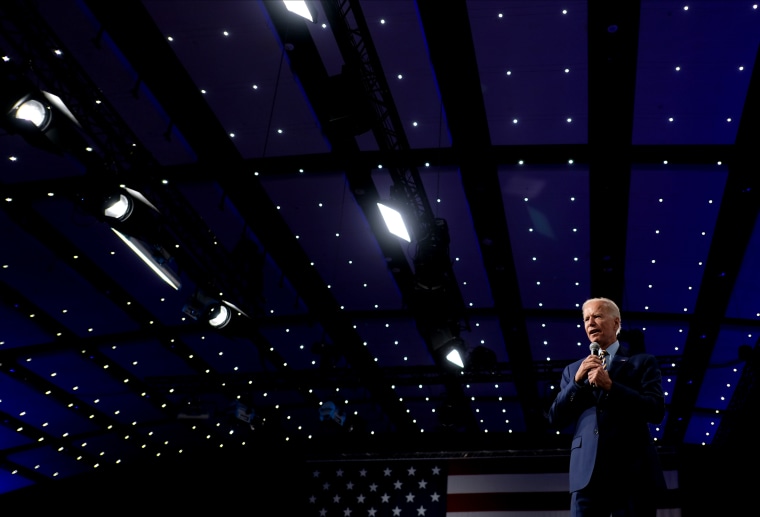Last spring, the dean of Iowa political journalists, David Yepsen, presciently warned the Cook Political Report that the Iowa Democratic Party's new caucus bells and whistles — four different measurements of results, satellite caucus sites and a new reporting system — could make for a nightmare in reporting results.
On Monday, after his prediction came true and the party was unable provide any results on Election Night, Yepsen was even more morose: "RIP caucuses. And after the GOP fiasco of 2012, Iowa probably shouldn't even try."
But the real danger for Democrats goes beyond one state party's reputation. It's that the chaotic count and the muddled result could presage a messy, protracted primary slog that could go all the way to the Milwaukee convention in July and imperil party unity heading into the fall.
With results from 71 percent of precincts reported by the state party as of 1:15 a.m. ET Wednesday, it's possible — even likely — that Pete Buttigieg will have won a narrow plurality of state delegate equivalents and that Bernie Sanders will have won a plurality of caucusgoers' first preferences.
If the split decision holds, Buttigieg would almost certainly owe his delegate lead to a second-choice surge from supporters of Joe Biden and Amy Klobuchar, whose groups didn't reach the 15 percent viability threshold in their precincts.
At first glance, the biggest loser would seem to be Joe Biden, currently in fourth place behind Buttigieg, Sanders and Elizabeth Warren on all counts. But the media spotlight on the tallying debacle and the muddled finish at the top — rather than Biden's finish itself — may be welcome news for the former vice president.
It's important to remember how unrepresentative Monday's caucus electorate was of the larger Democratic primary electorate and how much it played into Biden's weaknesses. Entrance polls suggested that about 90 percent of caucusgoers were white (compared to 60 percent of 2016 primary voters nationally), and a robust 21 percent of caucusgoers were under 35 years old — a confluence of Biden's weakest groups.
And caucuses tend to reward candidates with liberal, passionate supporters, but nationally, over 95 percent of delegates to the Democratic National Convention will be decided by much higher-turnout primaries.
A strong Buttigieg finish also isn't the worst development for Biden. Buttigieg's coalition is notably short on nonwhite voters, which could make him less of a threat to Biden in South Carolina on Feb. 29 and more diverse Super Tuesday states on March 3. And in a way, the fact that neither Biden nor Klobuchar were in contention to win (based on the early evidence Monday night) freed them to seize the stage while many cable watchers were still awake, while other candidates were waiting for more evidence to "declare victory."
Based on current returns, this probably wasn't a spectacular showing for Warren. The caucus format, with its emphasis on organizing liberal party loyalists, was supposed to play to her strengths. But despite finishing ahead of Biden, she is likely to finish a middling third and is the only one of the top five candidates who isn't currently leading in any one of Iowa's 99 counties.
If President Donald Trump wins re-election in November, no one will look back and blame the Iowa counting debacle. But there was a lot to like for Trump in the results. First, the Iowa Democratic Party's indications of lower-than-expected turnout, closer to that of 2016 than 2008, suggest that having so many choices may be making it harder for Democratic voters to actually make a choice.
Second, the more muddled outcomes and close bunching we see, the higher the probability of a protracted battle that results in no candidate attaining a majority of the 3,979 pledged delegates by the July convention. That could make it much harder for a fractured party to come together in the fall.
